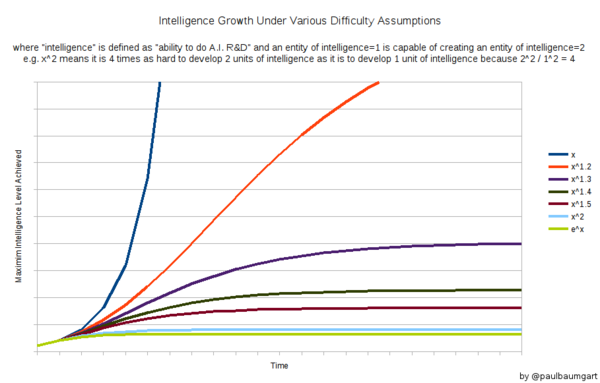 Yes. Yes we can. The last year has brought with it the revelations of massive government-run domestic spying machineries in the US and UK. On the horizon is more technology that will make it even easier for governments to monitor and track everything that citizens do. Yet I'm convinced that, if we're sufficiently motivated and sufficiently clever, the future can be one of more freedom rather than less.
Yes. Yes we can. The last year has brought with it the revelations of massive government-run domestic spying machineries in the US and UK. On the horizon is more technology that will make it even easier for governments to monitor and track everything that citizens do. Yet I'm convinced that, if we're sufficiently motivated and sufficiently clever, the future can be one of more freedom rather than less.
Ramez Naam: February 2014 Archives
There's a lot of talk about self-publishing vs. traditional publishing right now, and some of it gets a bit heated.
I posted some thoughts on this, to the extent that both traditional and self-publishing have strengths, and that as authors, we're all on the same side, over on my own blog. I'm going to leave the post there, so no one can mistakenly ascribe my words to Charlie.
And I'll be back tomorrow with a more substantial post.
In my science fiction novels, Nexus and Crux, I write about technology ('Nexus') that makes it possible to send information in and out of human brains, making it possible for humans to share what they're seeing, hearing, feeling, and even thinking with one another; and also for human minds to exchange data with computers.
The early versions of that sort of technology are real. We've sent video signals into the brains of blind people, audio into the brains of the deaf, touch into the brains of the paralyzed. We've pulled what people are seeing, their desired movements, and more out of the brains of others. In animals we've gone farther, boosting memory and pattern matching skills, and linking the minds of two animals even thousands of miles apart.
I gave a recent TEDx talk on linking human brains about the science in this area, and where I see it going. You can watch the video below.
My friend and fellow science fiction author William Hertling disagrees with me that the Singularity is further than it appears.
Will has spent some time thinking about this, since he's written three fantastic near-future novels about a world going through an AI Singularity.
He's written a rebuttal to my The Singularity is Further Than it Appears post.
Here's his rebuttal: The Singularity is Still Closer Than It Appears.
If you've seen other thoughtful rebuttals or responses out there, please leave links to them in the comments.
Ramez Naam is the author of Nexus and Crux. You can follow him at @ramez.
In my previous post on why the Singularity is Further Than it Appears, I argued that creating more advanced minds is very likely a problem of non-linear complexity. That is to say, creating a mind of intelligence 2 is probably more than twice as hard as creating a mind of intelligence 1.
The difficulty might go up exponentially. Or it might go up 'merely' with the cube or the square of the intelligence level you're trying to reach.
Blog reader Paul Baumbart took it upon himself to graph out how the intelligence of our AI changes over time, depending on the computational complexity of increasing intelligence. And I thought it was worth sharing with you.
 Are we headed for a Singularity? Is it imminent?
Are we headed for a Singularity? Is it imminent?
I write relatively near-future science fiction that features neural implants, brain-to-brain communication, and uploaded brains. I also teach at a place called Singularity University. So people naturally assume that I believe in the notion of a Singularity and that one is on the horizon, perhaps in my lifetime.
I think it's more complex than that, however, and depends in part on one's definition of the word. The word Singularity has gone through something of a shift in definition over the last few years, weakening its meaning. But regardless of which definition you use, there are good reasons to think that it's not on the immediate horizon.

